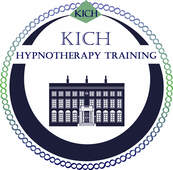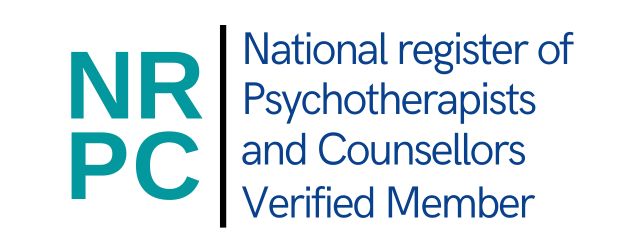 I was chatting to a client recently and I wanted to explain therapy in an analogy, clear and concise and really connective. Something she could remember and take away and think about and then apply it to her life. Hypnotherapy is all about getting people to change their perception of something, and the best way of doing this is to put something visually in their mind. Give them a visualisation that can then go and work on a number of levels. I thought I'd share with you what my analogy was. It happened to be a very significant and powerful one as it turned out. Therapy is like a roller-coaster. When you strap yourself in to the seat, part of you really wants the ride, to see what its like and to experience it. The other part is fighting telling you to not be so stupid and get the hell off! Then as the car you're in starts its climb, you feel that increase of adrenalin, further and further you climb further and further the feelings of anticipation and even discomfort arise. You don't like it, you might want to get off, but you know that you can't and that can be pretty scary. You reach the top, that part where they always shunt you forward a little till you're in that zone where they are going to drop you off into the unknown....and every part of you is on edge. Your heart beats faster, you might want to cry...you hold your breath, resisting the inevitable. Then, for just a split second, as you go over the top, you are weightless....suspended in air, absolutely free, it's breathtaking, nothing holding you down...It's like there has been a huge release of all of that negative energy. Then in an instant you're dashing back down to the bottom and you're back on the even track, maybe feeling slightly out of control, but you know you are safe. You're not sure exactly what to expect next, but it feels different because you know you have choices. It is in this time, the time when the car is slowing down, that you make decisions about where you'd like to go next. Do you stay on board going round and round? or do you get off as it comes to a stop, go back out into the theme park and take stock of what else is out there? See what other rides you can get on. Ultimately you get left with choices. but this time, they are choices you are in control of. So when you chose to go on the next ride, the fear is much less and the enjoyment is much more! Therapy is very much like that. But if you never get on the ride in the first place, you're never going to find out just what else is out there for you to enjoy.  1) Make peace with your present, so it won't affect your future. 2) What others think of you is none of your business. 3) Time heals almost everything, give time the time to heal. 4) Don't compare your life with others, you are not living their life; you have no idea what their life is truly like. 5) No one is the creator of your happiness, you are responsible for your own happiness. 6) Stop thinking so much, it's ok not to know all of the answers. 7) Smile, and remember, you don't own all of the problems in the world. www.kenttherapyclinic.co.uk  I was scrolling around on the internet the other day and came upon this photo. It got me thinking. So often we chastise our children with unkind words. Maybe a throwaway comment like "you're stupid" or "don't be a moron" seems like it would have limited impact. Seldom is the case. We have a total ban on the words idiot, stupid, moron and useless in my house. If I hear the word pop out of someone's mouth I immediately ask them to clarify why they have said it, and most often, they can't justify the words at all. Usually it transpires that the person yelling the insult is the one feeling out of control and stupid! Every time you hurl one of those words at another person (especially a child) it goes deep within their subconscious mind and stays there, like a marker, flagging up feelings of being an idiot/stupid/a moron etc. Eventually, the subconscious convinces the child that they really ARE those things. Many of you as adults probably remember being called those things at school, by your siblings or by your parents, and a huge number of people have had issues with their self esteem and self belief as they have grown up! It's hardly surprising really is it, when you think about it? So the next time you go to chastise a child (or an adult for that matter) instead of immediately yelling "don't be so stupid!", take a breath and remember, those words that you fling into the air with not a thought for the consequences, may very well be still ringing in that childs ears for years to come. www.kenttherapyclinic.co.uk  Here at Kent Therapy Clinic we love a bit of poetry...Poetry can mean so much, whether you love a particular author of poetry and prose, or if you have a favourite song because of its lyrics....we'd love to hear from you telling us which one is your favourite and why! Does anyone remember this beautiful poem, by Enid Blyton...? When the moon was blue, the sea was made of lemonade, and my boat was a raspberry bun. All the trees were golden cheese, which melted in the sun. I went to school in a swimming pool, with a teacher who was a seal. I dressed up in a banana skin, with a hat of orange peal. My house had feet and roamed the street, to a different place each night. It got up and ran past the garbage man, and gave him a terrible fright. All kinds of flowers rained for hours, until the city looked like a fair. People had roses under their noses, and daffodils in their hair. I was allowed to choose some special shoes, which walked on walls and ceilings. I went up like a fly 10 stories high, it was a fantastic feeling. My wooden bed was a rocket ship instead, and it took off one afternoon. On a long flight which lasted the night, and landed me on the moon. When the moon was blue. ~ This was one of my favourite poems as a child. What poetry or song lyrics do you really love...?  New Swedish studies demonstrate that hypnotherapy provides lasting relief, even for severe cases. Hypnosis can be a highly effective treatment for the bowel disorder IBS according to new research. The treatment of IBS using hypnotherapy has been studied before but only at highly specialised "hypnotherapy centres", two new Swedish studies evaluated a form of treatment that could be used in ordinary healthcare. 40% of participants showed a reduction in symptoms. IBS ( irritable bowel syndrome) is one of the most common digestive conditions and can cause bouts of stomach cramps, bloating, diarrhoea and constipation. It's thought that 10%-20% of people experience IBS at some point and it's twice as common in women as in men. ControlProfessor Peter Whorwell from the University of Manchester School of Medicine has been studying hypnosis for IBS for around 25 years and told BootsWebMD that the new studies back up his own findings: "These studies confirm accumulating evidence that hypnotherapy is an effective treatment for patients with irritable bowel syndrome and that its effects are sustained in the long term." He says hypnotherapy helps both physiologically and psychologically: "Hypnosis relaxes you and reduces your anxiety but we've done studies over the years showing that hypnotherapy has a direct effect physiologically. There are studies that show it reduces acid secretion. It reduces the hypersensitivity that IBS patients have. It reduces the contractions in the gut." He says hypnosis also helps IBS patients with bowel function, pain and bloating. He calls the therapy gut-focused hypnosis: "The mantra is: you are controlling your gut, rather than your gut controlling you." Swedish studies. The studies, conducted by researchers at the University of Gothenburg, involved a total of 346 patients. They showed that hypnotherapy alleviated symptoms in 40% of those affected and that the improvement was long-term. In one of the studies, published in the American Journal of Gastroenterology, 138 patients with IBS received hypnotherapy treatment for one hour a week over 12 weeks. The study showed that 40% demonstrated a satisfactory reduction in symptoms, compared with 12 per cent in the untreated control group. In a press statement researcher Magnus Simrén from The Sahlgrenska Academy of Gothenburg University said: "The treatment involves the patient learning to control their symptoms through deep relaxation and individually adapted hypnotic suggestions. The idea is for the patient to then use this technique in their everyday life." The positive effect was sustained for the entire year the study ran and led to an improvement in the quality of life experienced by the treatment group. In the second study, which was presented in the Scandinavian Journal of Gastroenterology, 208 patients who had previously received hypnotherapy were examined. The results showed that 85 per cent of those who had been helped by hypnosis still felt the benefits of the treatment up to seven years later and that the majority still actively use the technique in their everyday lives. "In this group, use of the healthcare system as a result of stomach and bowel symptoms had also reduced by 70%," said Magnus Simrén. EffectiveHe believes the studies show that hypnosis belongs in the arsenal of treatments for IBS: "Overall, our studies show that hypnotherapy is an effective method of treating IBS." To book in for a session with Emma Evans please visit www.kenttherapyclinic.co.uk http://www.webmd.boots.com/ibs/news/20120419/ibs-hypnosis-an-effective-treatment |
AuthorEmma Evans runs Kent Therapy Clinic and also helps coach other therapists in her spare time when she's not seeing clients at her busy practice. This blog is full of useful articles and interesting facts to do with therapy in general. Please feel free to add your comments to the blog. Archives
September 2023
Categories
All
|
Terms and conditions
Emma Evans, Kent Therapy, Online Therapy, Hypnotherapy, Clinical Hypnotherapy in Medway, Hypnotherapist in Kent, Stop Smoking Kent, Hypnosis ME8 Kent, Phobias, Anxiety, Stress Management, Hypnotherapist Medway, Gillingham, Maidstone, Kent, Chatham, Rochester, Strood, Hoo, Sittingbourne, Counseling, Psychotherapy, Supervision
 RSS Feed
RSS Feed






